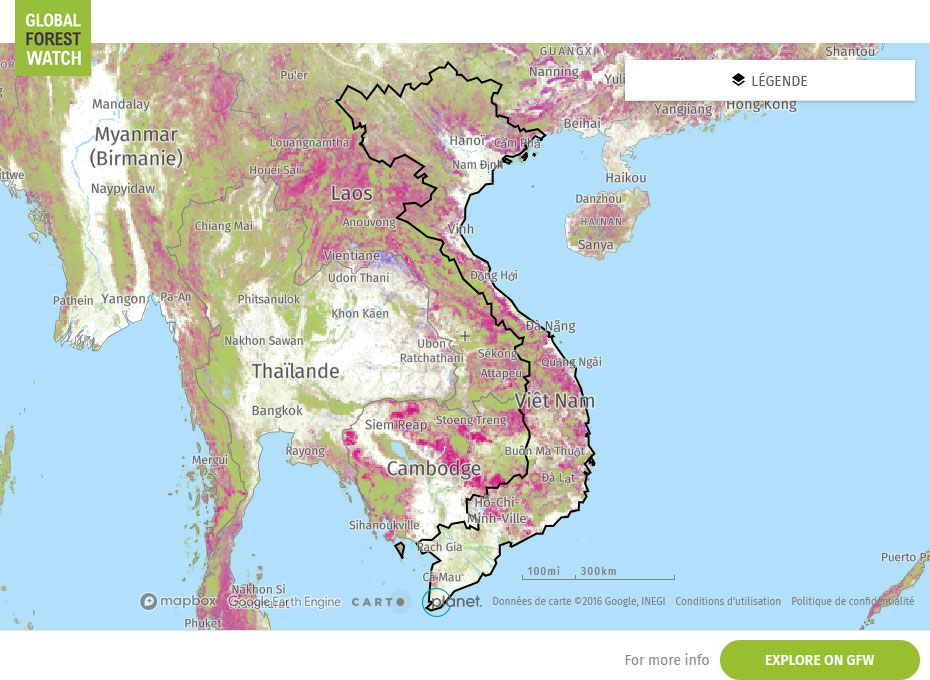Forest resources and context of Viet Nam
Viet Nam's wood processing industry is particularly known for production and export of high-end wood products, particularly furniture. Viet Nam is one of the world's largest exporting countries of timber and timber products.

Land surface
31million ha
Forest cover
14.8million ha
Production forest
6.9million ha
Forest ownership
67.9% publicly
Forest resources in Viet Nam
Types of forest
Viet Nam’s forests are rich with resources and biodiversity, including many endemic species. The forest ecosystems of Viet Nam can be divided in the following biological groups: (1) Tropical evergreen rainforests with a dense vegetation and rich biodiversity; (2) evergreen forests on limestone mountains, holding the characteristic indigenous flora of northern Viet Nam and southern China; (3) deciduous forests suffering a long dry season, and dominated by Dipterocarp tree species; (4) mangrove forests along the coasts; (5) tropical semi-deciduous moist forests in mountainous areas with high rainfall, but with a dry season of 1 to 3 months; (6) natural coniferous forests in mountainous areas; (7) Melaleuca forests in areas with frequent waterlogged conditions, mainly in the Mekong River delta; and (8) bamboo forests (VNFOREST, 2013).
The area distribution per type of forest products is the following: (1) Timber forest (8,9 million ha); (2) Bamboo forest (0,24 million ha); (3) Areca (palm and coconut tree) forest (0,004 million ha); and (4) Mixed forest, of timber and bamboo (1,14 million ha) (MARD, 2018/2020).
According to the MARD (2020), Viet Nam has around 14.6 million hectares (ha) of forested land, which constitutes 41.89% of the country’s total land area. Around 10.29 million ha are primary or otherwise naturally regenerated forests, and around 4.3 million ha are planted forests.
Forests in Viet Nam are categorized into three main categories:
- production forests (53.4%), including both natural forests and forest plantations;
- protection forests (31.8%), mainly for protection of water sources, soils, and environment; and
- special use forests (14.8%), mainly protected areas such as national parks and nature conservation areas (MARD, 2020).
Viet Nam is among the few “good examples of restoration successes” where forest cover has significantly increased as a result of government-led forest policies or initiatives (FAO, State of the World's Forests 2020).
Forest ownership in Viet Nam
In terms of ownership and management, the current Vietnamese forest area is:
- 58.7% publicly owned: 20.6% is managed by protection forest management boards, 20.5% by Communal People’s Committees (PC), 14.7% by special use forest management boards, 1.4% by armed forces, 1.4% by Science & Technology, and Education & Training organizations, and 0.1% by FDI (foreign direct investment) enterprises; and
- 41.3% privately owned: 20.8% by domestic households and individuals, 12.1% by economic organizations, and 8.3% by residential communities (MARD 2020).
key figures
| Land surface | 31 million hectares |
|---|---|
| Forest cover | 14.8 million hectares (47.6%); mostly other naturally regenerated forest and planted forest (3.6 million hectares planted); only 0.6% primary forest |
| Production forest | 6.9 million hectares designated for production |
| Forest ownership | 67.9% publicly owned 25.1% privately owned 7.1% unknown ownership |
| Annual change rate | 1.8 % per year; over the past 25 years (1990-2015) |
Source: FAO, 2015
See also: Global Forest Ressources Assessment 2020, FAO



